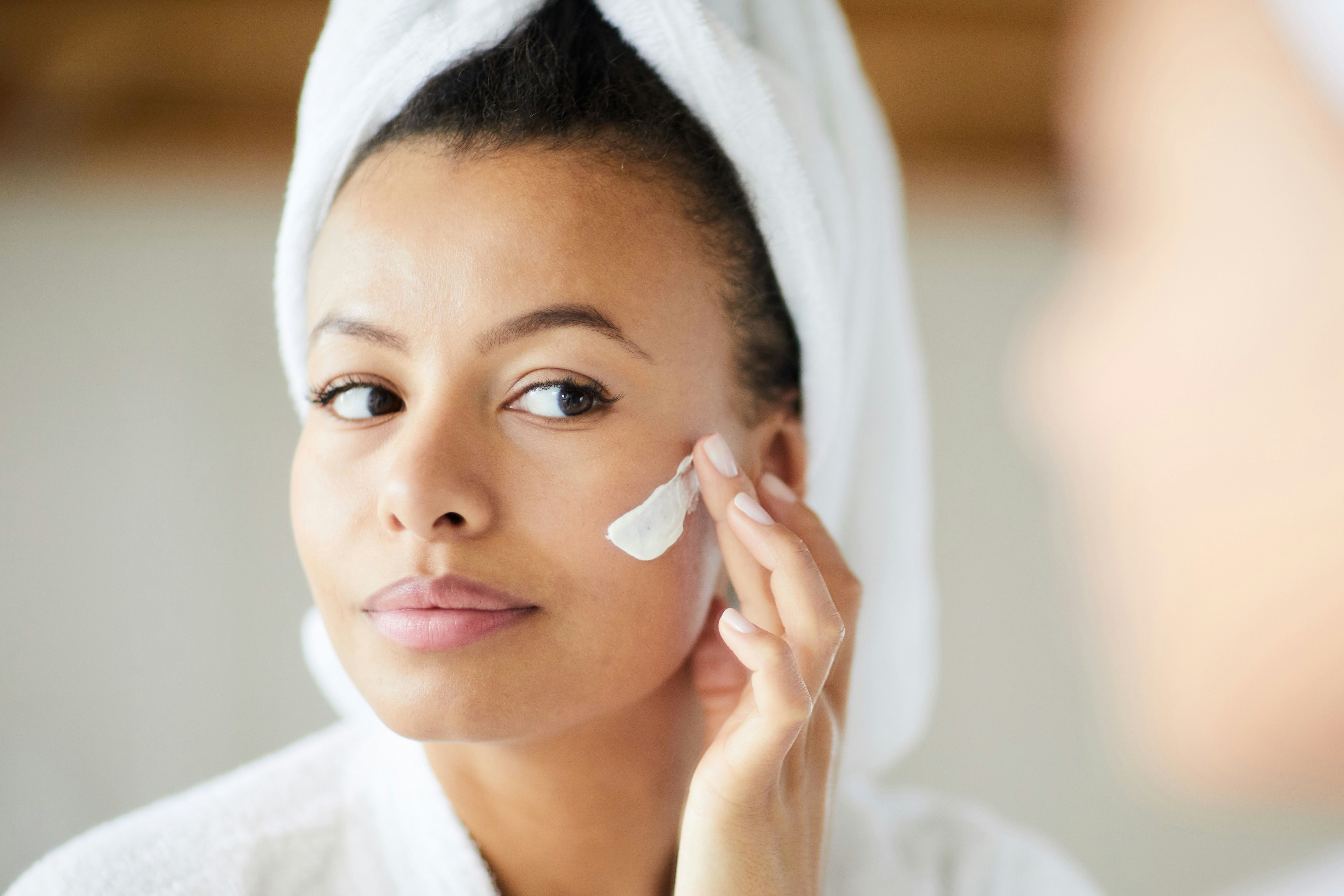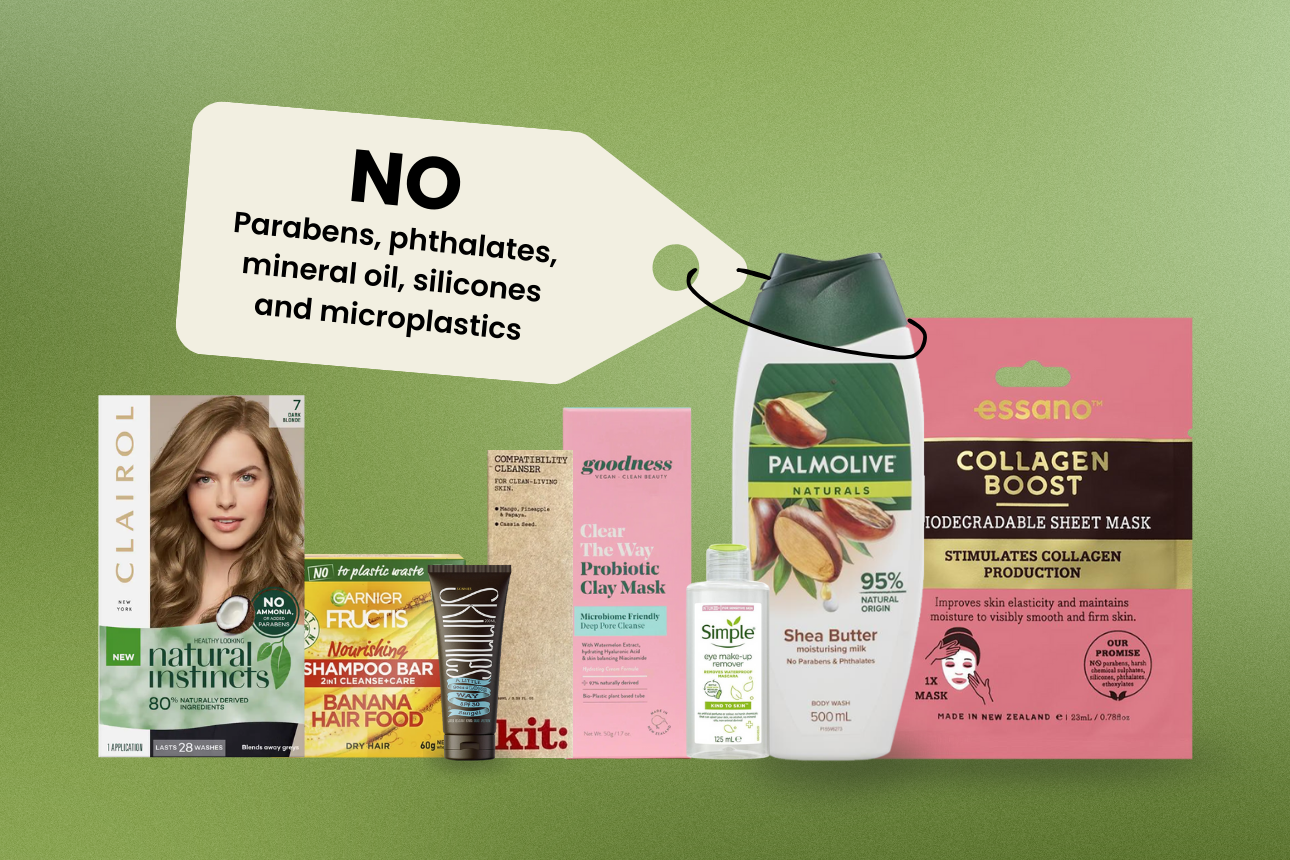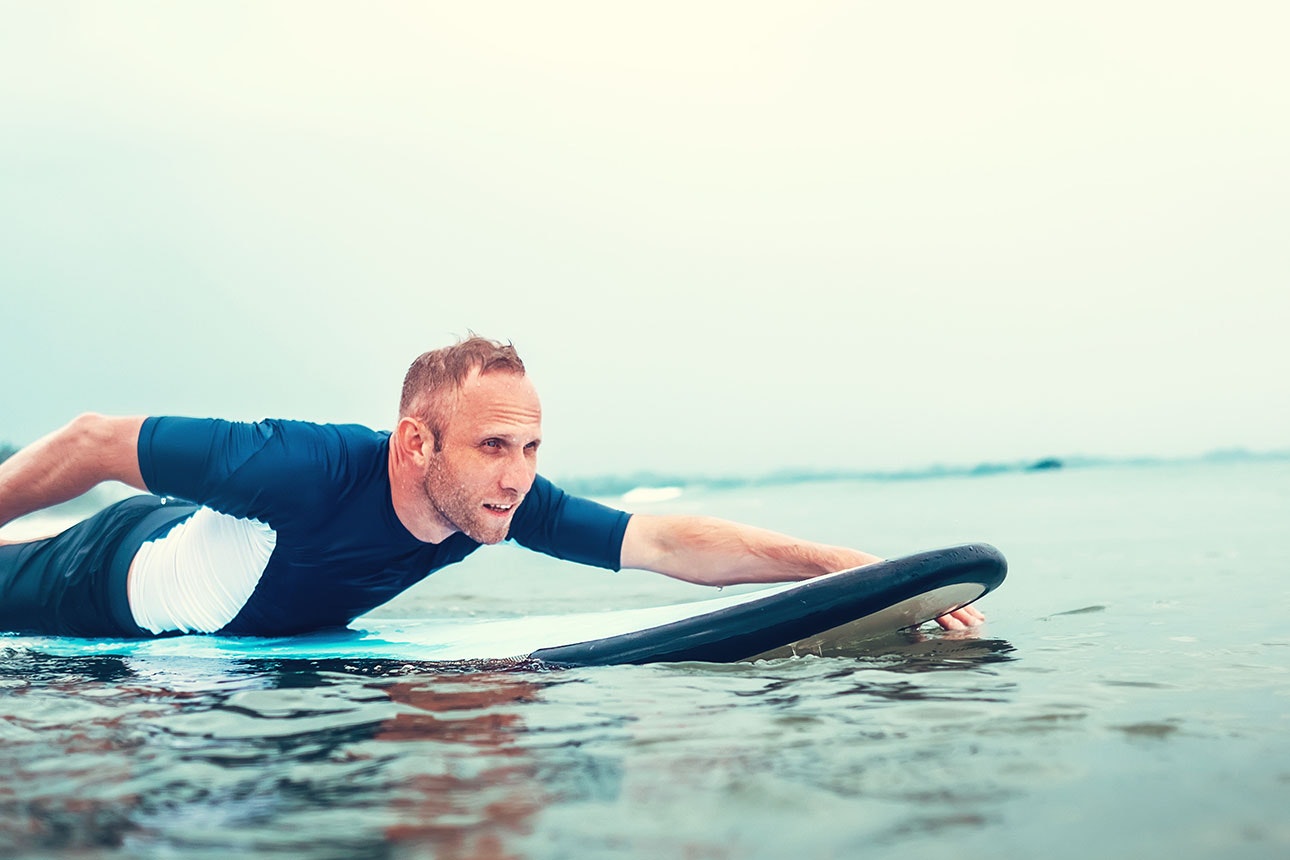
By Belinda Castles
Researcher | Kairangahau
Kids and young teens are buying expensive skincare products they don’t need or aren’t suitable for their skin. We talk to the experts about the issues.
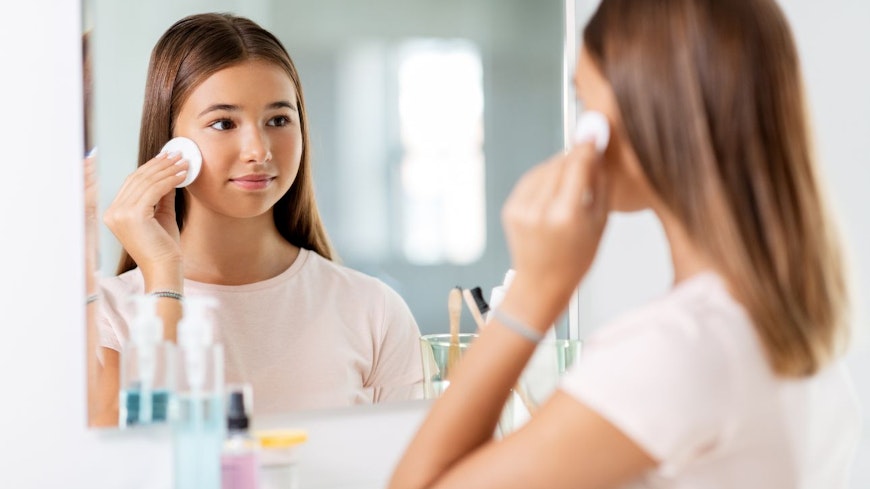
I’m a reluctant “Mecca mum”. Each time we head out of Gisborne on a roadie, my 12-year-old daughter Sophia’s first question is, “Can we go to Mecca?”. Even better if it’s on a school trip and there’s the opportunity to meet up with her friends to try the latest vanilla or salted caramel-infused Sol de Janeiro perfume mist, or get a free sample of the latest skincare brand she’s discovered online.
Not content with a pot of Blistex or a budget frosted pink lipstick like I wore in the 80s, Sophia and her friends happily save up their money to splurge on a $45 Summer Fridays’ Lip Butter Balm, or on a $84 pot of Sol de Janeiro’s Brazilian Bum Bum Cream, a body cream which claims to “smooth and tighten the appearance of skin”.
Then when it’s time for one of their birthdays, they all chip in and buy a Mecca gift voucher so the birthday girl can add to her collection of skincare and fragrance products. When a sizeable collection adorns the dressing table, she’ll share a pic to her friends on social media while watching “how to” skincare routines by influencers as young as 8 years old promoting expensive skincare brands like Drunk Elephant and Glow Recipe.
I asked Sophia and her friends why they like shopping at Mecca and the reasons were plenty. “Smells nice, exciting, bright colours, I like accumulating points, my friends have the products, I’ve seen the products on YouTube,” were some of their responses.
While buying expensive lip balms and fragrances is harmless enough – except on their (or their parents’) wallets – kids and young teens are also buying unnecessary serums and products intended for older skin that contain retinol and other acids to add into their daily routine. It’s this trend that concerns dermatologists.
To find out more about issues around skincare trends for kids, we talked to three experts – Dr Louise Reiche, a dermatologist and the past president of the New Zealand Dermatological Society Inc, Bodo Lang, a professor of marketing analytics at Massey University, and Gehan Gunasekara, an associate professor of commercial law at the University of Auckland.
Why are kids and young teens getting hooked on expensive, unnecessary skincare?
Professor Lang said the reason some young teens are heavily invested in unnecessary or unproven skincare products can be attributed to several marketing and psychological factors.
“The main factors are the persuasive effect of social media and influencers, peer pressure and social identity or proof [where people copy the action of others], and targeted marketing strategies used by beauty brands.”
Social media platforms, such as Instagram, TikTok and YouTube, are major channels for promoting beauty and skincare products. According to Professor Lang, social media influencers play a crucial role in shaping consumer behaviour, particularly for teens.
“Teens are highly impressionable and often view influencers as relatable figures so trust their recommendations, regardless of whether the influencer is qualified or independent. Influencers are often judged by the entertainment value of their content, rather than its credibility.”
Professor Lang said we also shouldn’t underestimate the effect of peer influence, as research has shown that peer acceptance is crucial for teens.
Beauty retailers like Mecca and Sephora also use sophisticated marketing strategies that resonate with teens. One of these strategies is to sign them up to a loyalty programme with the lure of free products when they spend a certain amount of money.
Sephora’s Beauty Pass lets you accumulate points in a number of ways – shopping, writing a product review, completing your beauty profile and downloading the Sephora app. The company let me sign-up as 13-year-old with no questions asked about parental consent.
Mecca’s Beauty Loop rewards programme has different perks depending how much you spend, including free samples with online purchases. The programme’s terms and conditions state, “Remember, if you are under the age of 18, you must have your parent or guardian’s approval to join the MECCA Beauty Loop program. Your parent or guardian will need to read these Terms & Conditions. We will assume, if you are under 18 when you join, that you have complied with these requirements.”
I’m not sure how many teens would take that advice. I know Sophia didn’t when she signed up for Beauty Loop!
Does this marketing matter?
Kids and teens are a lucrative market for companies. Not only do they influence what their parents buy (pester power), marketers also bank on shoppers sticking to buying habits they acquired when they were young.
Associate professor Gehan Gunasekara said children are especially vulnerable to digital manipulation, and it’s concerning that young people are signing up for loyalty programmes.
“Companies may be collecting and sharing information about them which can potentially be used when they become adults. This information may also reveal other information about the child, including health information, and lead to them being targeted for other products.”
The Privacy Act allows businesses to use this information to contact you for promotional purposes if it’s outlined in the terms and conditions, which it usually is. This means your child could be bombarded with even more targeted marketing communications and you can be sure these products will be turning up on their social media pages too. We think it’s unlikely young people are reading these T&Cs, let alone understanding them or discussing them with their parents.
Associate professor Gunasekara said our Privacy Act wasn’t designed for this type of digital environment and New Zealand is falling behind other countries’ legislation when it comes to protecting children.
“Overseas there have been moves to rein in this type of marketing, especially when it’s aimed at children. For example, in the United Kingdom and California companies are required to act in a child’s best interest, rather than their own. While our revised legislation pays some attention to when information is collected from children and young people, it’s not prescriptive enough and doesn’t specify the age of a person who may access the digital content and advertising.”
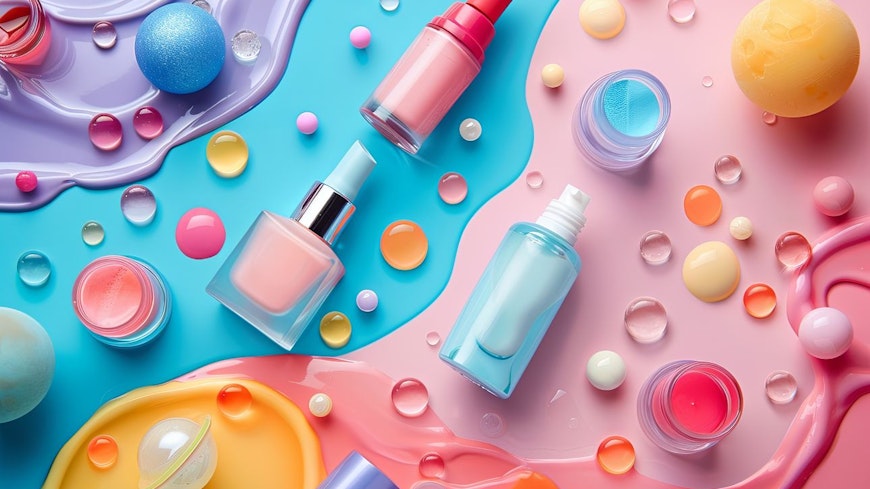
Do kids and teens need expensive skincare?
The simple answer is no. Dr Louise Reiche said when it comes to young skin, it’s best to keep a skincare routine simple.
“Soap, water and sunscreen is all that’s needed for most young people with normal and healthy skin. Toners are usually unnecessary but if your child wants a cleanser, a budget soap-free one will be suitable. A moisturiser can be used when skin is dry.”
Dr Reiche said there’s no reason young people need to use a skin serum. A serum typically refers to a lightweight product containing a higher concentration of some ingredients. They tend to be an expensive option for their quantity.
But it’s the trend of using products with active ingredients such as retinol (often touted for anti-aging), niacinamide and hyaluronic acid that has dermatologists worried.
“These ingredients aren’t suitable for young skin. The active ingredients can gradually break down the skin barrier and cause long-term problems. There’s also the risk of acquiring an allergy to one of those ingredients, which can predispose you to ongoing eczema for the rest of your life,” Dr Reiche says.
Mecca is an example of one retailer taking some of the responsibility onboard with its online article “How to Tell Your Tween They’re Not Ready for Retinol”. When I last visited Mecca with Sophia, I was pleased that Mecca practised what they preached – the sales assistant directed us away from expensive brands and unnecessary products and told us a good sunscreen and moisturiser was all she needed.
Dr Reiche says there is a positive side to young people showing an interest in skincare, as long as they’re not buying inappropriate products or wasting their money on expensive brands.
“Ask them why they want these products and help them understand they won’t prevent problems they don’t have. Use it as an opportunity to talk about self-image and how it can be influenced by factors such as social media.”
If your teen has problem skin or moderate to severe acne, Dr Reiche said it’s best to talk to a GP or a dermatologist about the treatment options.
Dr Reiche’s top skincare tips for kids and teens
Sun protection is essential: Kids and teens should use a
broad-spectrum sunscreen that is SPF of 30 or above (the NZDSI
recommends SPF50+ for greater protection) and water resistant.
Covering up with suitable clothing (preferably UPF50+), a
broad-brimmed hat and UV-protective sunglasses is important, too, as
well as seeking shade when the sun’s rays are most intense.Skincare routines should be simple: Soap, water and an inexpensive
moisturiser when skin is dry is sufficient for normal, healthy skin.
If your kids want a soap-free cleanser, an inexpensive one will be
fine.Lifestyle plays a part too: Talk about other lifestyle factors with
your kids. Make sure they keep hydrated (mainly water), eat a
balanced diet with lots of fruit and vegetables, exercise regularly
and get plenty of sleep.
